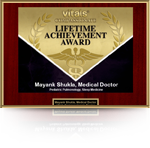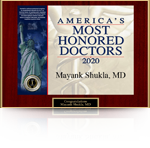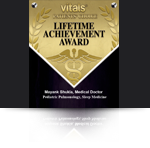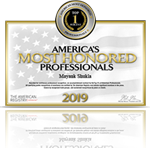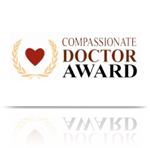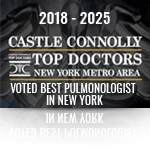Ready to Schedule an
Appointment with Dr. Shukla?
MOLD ALLERGIES
Treating Mold Allergies in New York City
Get Mold Allergy Treatment by Dr. Shukla
Although many of us associate allergies with pollens and other outdoor conditions, there are those allergens that can strike both indoors and out. One of the more common allergens in this group is mold. Like other types of allergies, mold allergies are triggered by an overreaction from your immune system, in this case to mold spores you inhale. The reaction is similar to other allergic reactions.
Mold Allergy Symptoms
- Sneezing
- Runny Nose
- Cough
- Postnasal Drip
- Itchy Eyes, Nose, or Throat
- Watery Eyes
- Asthma
Those who suffer from asthma either triggered by or in addition to mold allergies may also experience wheezing, chest tightness, and shortness of breath. Mold is prevalent in all kinds of environments, but only certain types of mold cause allergies. In addition, being allergic to one type of mold does not necessarily indicate that you will be allergic to other types. The most common varieties of mold to cause allergies are noted below.
Known Molds to Cause Allergies in New York
- Alternaria
- Aspergillus
- Cladosporium
- Penicilium
In some cases, molds can cause illness without an allergic reaction. Irritant or toxic mold reactions can cause symptoms similar to allergic reactions, and may also result in headaches, hoarseness, fatigue, and skin irritation.
Asthma Sufferers Be Aware of Mold Allergies
You may be more likely to develop a mold allergy if you have a family history of allergies and/or asthma. Certain occupations tend to have higher mold exposure, such as farming, logging, carpentry, baking, mill work, wine-making, greenhouse work, and furniture repair. If you live or work in a building with humidity above 60 percent or excess moisture – from a leaky pipe, for example – you may also be at a higher risk for mold allergies. Poor ventilation can also increase mold levels.
Treat Mold Allergies with NYC’s Dr. Shukla
If you live or work in any of the above listed conditions, Dr. Shukla can develop a treatment plan for you to control your mold allergies. Making environmental changes to reduce mold can help, as can decongestants, nasal corticosteroids, antihistamines, and any number of other treatments to alleviate your allergy symptoms. Contact us to schedule your mold allergy treatment with Dr. Shukla today.
Awards and Recognition
Dr. Mayank Shukla Top-Rated Pulmonologist 2018 - 2024
